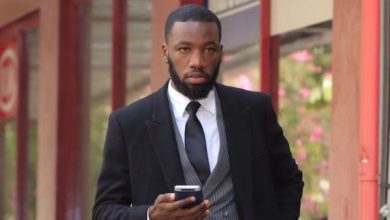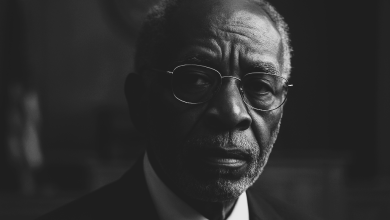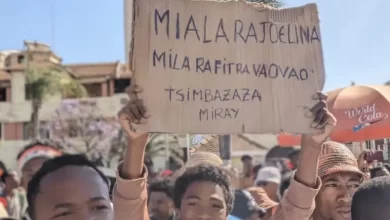WHEN SPEAKING TRUTH BECOMES SEDITION
The Legal Cost of Criticising Power in Africa by Bryan Miller

MASERU, LESOTHO —
It started with a 90-second video on social media.
Tšolo Thakeli, a 31-year-old activist from Lesotho, looked into his phone camera and asked the question thousands of unemployed young Africans ask every day: “Where are the jobs we were promised?”
By the end of that week, he was behind bars arrested for allegedly insulting Prime Minister Sam Matekane and inciting public unrest. Days later, the charge sheet evolved: sedition.
For many in Lesotho and across Africa, Thakeli’s case is not just about a video, nor about one man. It is a telling reminder that in many corners of the continent, speaking truth to power remains a dangerous, punishable act.
The Reawakening of Sedition Laws
Sedition — a colonial-era legal relic — criminalizes speech deemed threatening to the authority of the state. Once wielded by imperial regimes to silence independence movements, it has found renewed favour in 21st-century African politics.
In Lesotho, the law carries broad definitions and heavy consequences. Thakeli, whose only weapon was his smartphone and a voice, spent two nights in a freezing cell, was denied a mattress, and was later warned by police that they wouldn’t protect him if anything happened to him.
But Lesotho is not alone.
In Nigeria, the government has routinely cited sedition and cybercrime laws to arrest journalists and social critics. In Uganda, musicians like Bobi Wine have faced similar legal harassments. In Kenya, bloggers have been detained for ‘misuse of licensed communication equipment’. The pattern is clear: the state, through legal force, is asserting its intolerance of criticism.
Weaponising the Law: A Continent-Wide Pattern
Across Africa, sedition laws often vaguely worded have become convenient tools of political control. The problem is not just their existence, but their selective enforcement. Criticism from opposition voices is criminalised; the same from ruling party loyalists is ignored or applauded.
Legal analysts are increasingly worried about the phenomenon of lawfare using the law itself as a weapon to delegitimise political dissent. Courts are dragged into political battles. Citizens become defendants for exercising constitutional rights. And public trust in justice systems erodes quietly.
A Legal Crossroads: Constitutional Rights vs. State Sensitivities
The irony is that most African constitutions guarantee freedom of expression. Lesotho’s 1993 Constitution, for instance, assures citizens the right to hold opinions without interference. But as Thakeli’s arrest shows, such rights are not always upheld in practice.
“This case isn’t just about Tšolo,” said a regional human rights lawyer. “It’s about whether African governments are truly accountable to their people, or whether they’ll keep hiding behind the curtain of fragile egos and outdated laws.”
The New Frontlines: Social Media and Youth Power
What truly frightens the political class is the changing medium of dissent. No longer confined to newspapers or court petitions, criticism now trends on TikTok, Twitter, and WhatsApp.
This digital revolution is largely youth-led fast, emotional, and unstoppable. Thakeli’s video didn’t go viral because of its production quality. It spread because millions of young Africans saw themselves in his words: unemployed, unheard, and unafraid.
The government’s response only confirmed what many feared: that even peaceful questioning could be met with prosecution.
What’s Next for Africa’s Legal Community?
The legal profession is at a crossroads. Do lawyers, judges, and bar associations remain silent while justice is shaped to serve the powerful? Or do they rise to protect the foundational principles of their constitutions?
Thakeli is due back in court on July 2. His bail could be revoked. But far beyond the courtroom in Maseru, a larger trial is underway — a trial of democracy, rule of law, and the right to ask difficult questions.
In the end, this is not just about one young man in a small kingdom. It is about the future of accountability in Africa.
And the cost of truth.
SIDEBAR
What is Sedition?
Sedition is the act of inciting people to rebel against the authority of a state. Under many African penal codes, it includes speech, publication, or actions that are deemed “seditious” — often defined vaguely enough to encompass political criticism. Critics argue that sedition laws conflict with modern constitutional rights to freedom of expression and are ripe for abuse.
Would you like this formatted for PDF layout, with graphics or quotes? Or adapted for social media campaign posts (e.g., Inst




